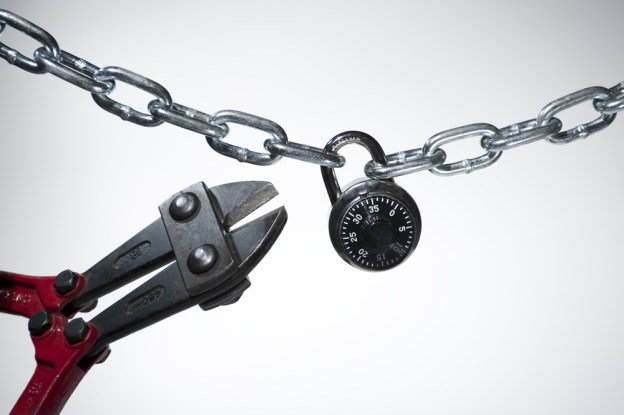
A petition demanding the White House “make unlocking cell phones legal” again has surpassed the 100,000-signature threshold, meaning the Obama administration must now respond to citizens’ call for gadget justice. The question is, will it do any good?
The “We The People” petition to overturn the Librarian’s decision was launched by San Francisco-based entrepreneur Sina Khanifar on January 24, two days before the 90-day grace period for cell phone unlocking expired. Until a few days ago, the petition remained stuck at around 80,000, but, according to The Next Web, a last-minute push on Twitter and social news giant Reddit apparently tipped the signature count over the 100,000 mark.
Exempted under the 1998 Digital Millennium Copyright Act (DCMA) for six years, the unlocking of new cell phones became illegal under the DCMA once again after the Librarian of Congress overturned the DMCA exemption in October of last year. The Librarian was convinced by CTIA, the wireless industry’s lobbying group, and other proponents of the no-unlock rule that an exemption for unlocking was no longer necessary because phones that come pre-unlocked are much more widely available than they once were.
Unlocking cell phones removes the digital locks installed by wireless carriers, freeing users to take their phones to a carrier other than the one from which they purchased their devices, or to use their smartphones on local networks during international travel. To remove the digital lock on a device requires users to alter the firmware installed by the carrier, which is protected by the DMCA.
It is not illegal to unlock all cell phones, however. The rule only applies to devices purchased after October 26, 2012. Older phones may still be unlocked, and many carriers will unlock devices on their networks as long as the customers have been with the company for a certain period of time and have an account in good standing, or are no longer on contract.
Those who decide to unlock their new smartphones anyway could face lawsuits, though experts on the DMCA doubt wireless carriers will go after individual infringers – and it’s not yet clear whether there is any way for a wireless carrier to know whether a phone on their network has been unlocked.
People who make money by unlocking other people’s cell phones, or sell illegally unlocked devices risk fines of up to $500,000 and up to five years in prison, or both, for a first offense. For repeat offenders, those consequences double.
For Khanifar, the decision to make unlocking illegal again is a personal one. According to a blog post published early this month, he received a cease and desist letter from Motorola after he launched Cell-Unlock.com. The company threatened him with half a million dollars in fines and jail time. An attorney from Stanford’s Cyberlaw Clinic, Jennifer Granick, offered to help the 20-year-old Khanifar fight Motorola. The company eventually dropped its threats, and Granick went on to help persuade the Librarian to exempt cell phone unlocking under the DMCA in 2006.
Unfortunately for Khanifar and other opponents of the no-unlock rule, there is little chance that the White House itself can change the Librarian’s decision, as the Library of Congress is not subject to presidential oversight. Obama could urge Congress to pass legislation that would make cell phone unlocking permanently exempt from the DMCA – but such efforts seems unlikely, given the president’s other legislative priorities. Still, Khanifar remains determined.
In an email, Khanifar said he hopes the petition’s success will “start a meaningful discussion about some of the problems with the anti-circumvention provisions of the DMCA.”
“I expect they’ll write back discussing those provisions, and if we’re lucky perhaps they’ll say they agree that unlocking is good for consumers,” he said.
But for Khanifar, “the petition is just the start.” He has launched up a new website, FixTheDMCA.org, “to coordinate activism on this issue,” and make unlocking legal for good.
Image via Condor 36/Shuttstock
Editors' Recommendations
- Why Motorola could be the smartphone company to beat in 2024
- Why the $450 Samsung Galaxy A54 may be 2023’s most savvy smartphone buy
- Why we need to stop reinventing smartphones with secondary screens
- Here’s why you should buy certified renewed or refurbished smartphones
- Why aren’t smartphones designed for a woman’s hand size?


